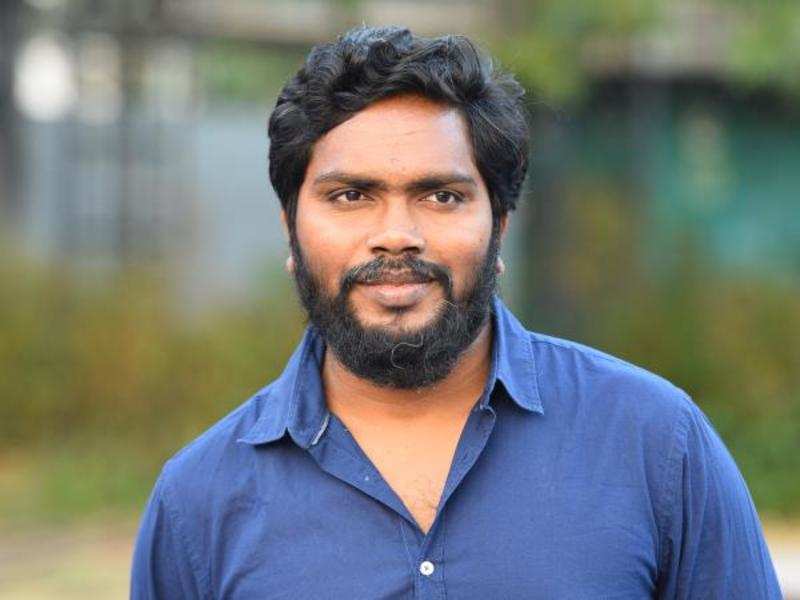How Tamil filmmaker Pa Ranjith is bringing marginalised into the mainstream

The brain behind several hit films in Tamil, Pa Ranjith is forcing us to confront caste in all its complexities.
Smitha R | TwoCircles.net
NEW DELHI — A filmmaker from the Tamil film industry is taking forward Dalit leader and social reformer B.R. Ambedkar’s clarion call for the marginalised to “Educate, Agitate and Organize”. Ambedkar gave the call to Dalits and other oppressed communities to drive home his point that only a mass movement can upend India’s entrenched caste oppression.
Tamil Filmmaker and director Pa Ranjith is doing the same by shoving caste into the consciousness of the masses through his movies. His chosen weapon of agitation is Tamil films. Ranjith is bringing together creative talent in the community to bring to the fore hitherto unexplored cultural, linguistic and culinary aspects of the marginalised.
Earlier this year, he told The Print that he decided to direct movies because his lifestyle and that of his people were not being represented. “After so many years of independence, where is the space for Dalits in the mainstream? Especially in the cultural movement and arts?,” Ranjith questioned.
His craft
Ranjith’s films are known to portray caste realities and showcase the life of the marginalised. His genius lies in the hidden subtle symbolism that dots his movies: a picture of Ambedkar here, a statue of Buddha there, the dominance of the colour blue (a symbol of Dalit identity), among others.
The opening sequence of his 2016 hit movie Kabali shows the protagonist (Rajnikanth) reading the book My Father Balaiah by Professor YB Satyanarayana, a Dalit author. The book is a biography of a Dalit family. This is just one of the many ways Ranjith has tried to promote the work of Dalits and encourage his audience to examine caste oppression.
Ranjith has clarified in several interviews that unlike many others before him who explored caste but through an alternate medium, he wants to be part of the mainstream to assert the identity of the marginalised and tell their stories in all their complexities. “I am not particularly interested in working from an alternate platform. If we have to communicate with the masses, it is important to stay in the mainstream and share our narratives,” he told HuffPost in 2019.
Despite his activism, Ranjith does not like to be called a Dalit filmmaker. “I don’t want to be known as a Dalit filmmaker. I touch upon caste inequalities in my films because I’ve been affected by it,” he told Indian Express in 2016 while speaking on the success of his movie Kabali.
Ranjith’s movies stay away from the patronising and pitiful approaches in which the stories of the marginalised are told and are an attempt to correct the near absence of Dalit history and existence in popular culture except through caricatural representation.
Caste influence
The 39-year-old filmmaker grew up in Chennai’s suburbs in a one-room house that was built by then government of MG Ramachandran. During his formative years, Ranjith has recounted several instances of casteism both overt and covert. He remembers his mother Gunavathy advising him to not speak about his caste.
When he first entered the Tamil film industry, this was the advice that several other well-wishers gave him. But Ranjith did not bother to follow. A student of animation at an Arts College in Chennai, he was introduced to Dalit politics and literature through his brother Prabhu, a lawyer associated with a Dalit organisation. Since then Ranjith has read extensively on the Dalit movement, politics and Ambedkar.
Showcasing culture of the marginalised
Ranjith has not restricted himself to movies to take forward the fight against caste. His YouTube channel Neelam Social regularly questions deeply entrenched caste inequalities and showcases the culture of the marginalised. It had a show exclusively covering Dalit food and a talk on how meat politics affects the marginalised.
He has a library on Ambedkar and his musical rap band The Caste Collective brings the folk song, music, dance and musical instruments of the marginalised to the masses. The 19-member band churns out songs that ask uncomfortable questions on manual scavenging, and reservation among others.
His publication house has helped bring out several Dalit and Muslim talents to the fore.
Ranjith’s activism has had consequences. He has police complaints filed against him for questioning the caste oppressions perpetuated by popular historical figures and pointing out the caste exploitations that are entrenched in revered Hindu traditions. He remains unfazed by the criticisms. Ranjith is determined to carry forward his work that perhaps could one day truly lead to Ambedkar’s dream of annihilation of caste.
Smitha R is a journalist who has covered health, environment and social issues for over a decade for leading national and international media. She tweets at @SmithaR12
